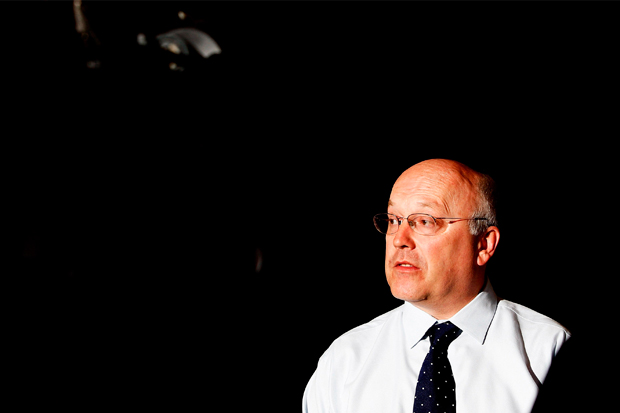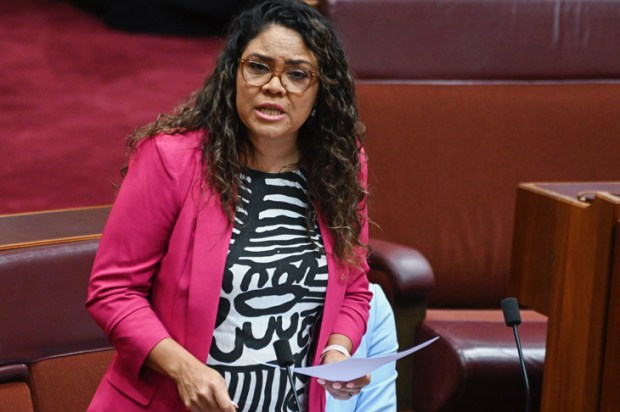Brandis is right, gleeson is wrong
Normally, I would not get involved in disputes concerning politicians, as they should be able to look after themselves. Moreover, you must know by now how alien it is to my nature to defend anyone, especially a politician. But today I make an exception, for one reason alone. A great injustice is being done to George Brandis over his dispute with the Solicitor-General, Justin Gleeson QC. He deserves to be defended. Brandis is undoubtedly right on all of the substantive issues and Gleeson is wrong. So are the media and legal elites who have sided with Gleeson and who are pursuing Brandis with such venom. In doing so, they are ignoring the law or perversely misrepresenting what it clearly says. This is clear and beyond argument. Worse, no-one seems to be defending Brandis, including those who must know he is right on all the major issues. It seems they just cannot resist the temptation to put in the boot to even up a few scores, especially because he dared to criticise the holy grail of the hand-wringing establishment, the Human Rights Commission, another issue on which Brandis was clearly right. But as the issue itself and its rights and wrongs are probably lost on most of the community, here is the plain man’s guide to the issue that will make things clearer.
In a nutshell, Gleeson, the Labor Party and sections of the media are complaining about a directive given by the Attorney-General that when government officials want an opinion from the Solicitor-General, they should go through the Attorney-General first. The Attorney-General, as you know, is a political figure and a member of the Cabinet, and the Solicitor-General is a barrister under contract to serve the government while he is in the job. The protagonists on the Gleeson side say that Brandis’ directive is an outrageous restriction on the proper role of the Solicitor-General and that it should be revoked. In support of that view, they use three arguments against Brandis that have been widely accepted. None of them has any substance.
Their first argument is that Brandis’ directive is new and imposes improper restrictions on the traditional role of the Solicitor-General; therefore, it is said, it is wrong. If only they would read and think, they would see just how false this argument is and how contrary it is to the law. The office of Solicitor-General is created by an Act of Parliament and it gives him two roles. The first is that he is to appear in court, as counsel, for the commonwealth and its agencies. Brandis’ directive deals with the administrative minutia to make that happen. In other words, the Solicitor-General is an advocate, a hired gun to present the government’s case in court. His second role is to give opinions on questions of law. But to whom may he give that advice? The answer is clear, for the Act (remember, this is actually the law) says he may give his opinion, not to anyone who asks for it, but ‘to the Attorney-General’. And on what? On questions of law referred to him ‘by the Attorney-General’. As if that were not clear enough, he may also perform other functions ‘as the Attorney-General requests’. And nothing else. That happens to be the law. It has been the law since 1963.
The second argument against Brandis is that his directive affects the ‘independence’ of the Solicitor-General. This is a nonsense argument. The Solicitor-General is a barrister and employed as such. All barristers are independent and no barrister would give you the answer you wanted simply because you asked for it. The Solicitor-General is, and always has been, as independent as any other barrister and there is nothing in Brandis’ directive that even touches on this, let alone restricts it.
The third argument is that Brandis embarked on this alleged restriction without consulting Gleeson first. This is simply not so and is another misrepresentation, obviously made to denigrate the Attorney-General. I have read all of the documents, the evidence in the Senate committee and the separate rules on what consultation should take place and I can assure you that Brandis sat down in a conference and consulted with Gleeson, in person, as he was required to do; the staff members’ notes bear this out. If Gleeson wanted to put in another twopenneth worth, nothing stopped him from doing so. My interpretation, I regret to say, is that Gleeson believes that consultation means agreeing with him.
I had a good laugh when I read that the main protagonist against Brandis, Mark Dreyfus, had a chance to show what ‘consultation’ meant, when, as Attorney-General, he had to consult with judges and their spouses on judicial pensions in 2013. For him, consultation was good enough if it was chit-chat ‘by way of email and telephone exchange’ between two government departments, and not even with the people concerned, as Brandis clearly did. Some consultation!
To repeat, Brandis’ directive does nothing but set down some administrative processes so that everyone in the government will know how to book the Solicitor-General to appear in court for government agencies and how to arrange for the Attorney-General to obtain an opinion from him in exactly the way the law requires.
Why then has Brandis been subjected to such an attack which so clearly has no basis in law or fact? Simply because he is effective and has firm convictions from which he is not lightly budged. And, I suspect, because we live in times when the media will simply not accept that anyone who holds a view different from the hallowed view of the establishment, on any subject, could conceivably have any merit. I hope he sticks to his guns – and that the Prime Minister continues to back him up.
The post QC notes appeared first on The Spectator.
Got something to add? Join the discussion and comment below.
Get 10 issues for just $10
Subscribe to The Spectator Australia today for the next 10 magazine issues, plus full online access, for just $10.
You might disagree with half of it, but you’ll enjoy reading all of it. Try your first month for free, then just $2 a week for the remainder of your first year.















Comments
Don't miss out
Join the conversation with other Spectator Australia readers. Subscribe to leave a comment.
SUBSCRIBEAlready a subscriber? Log in